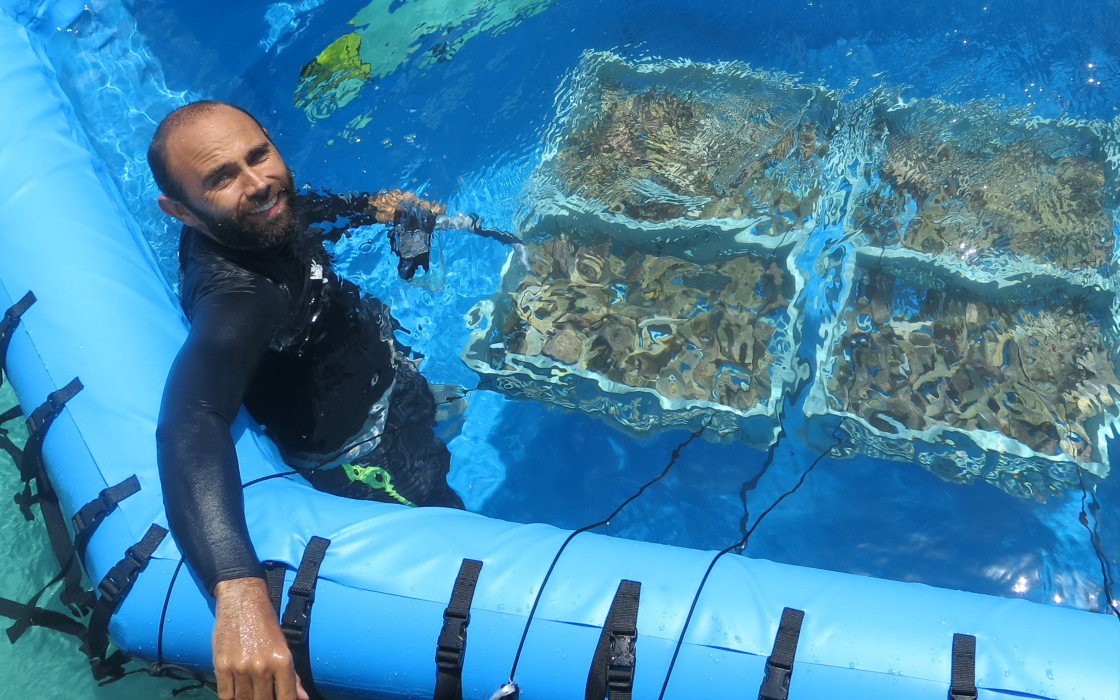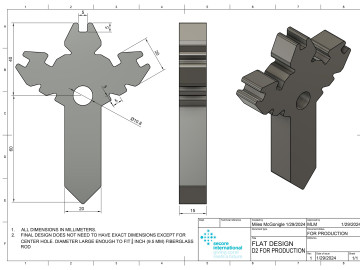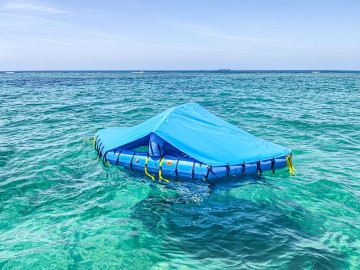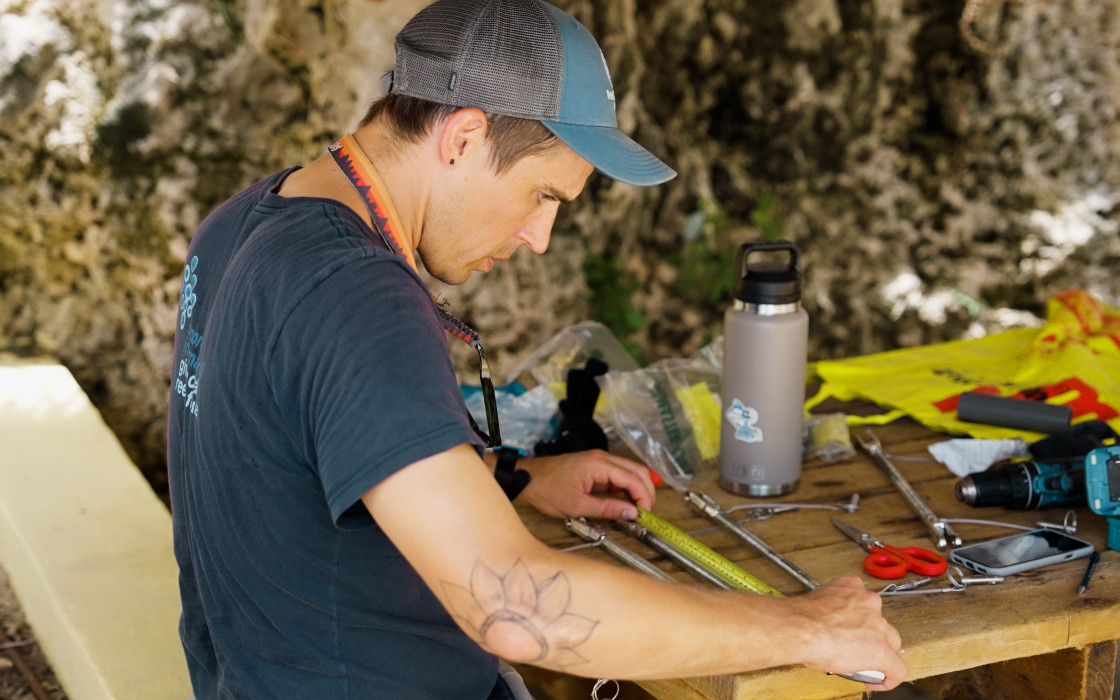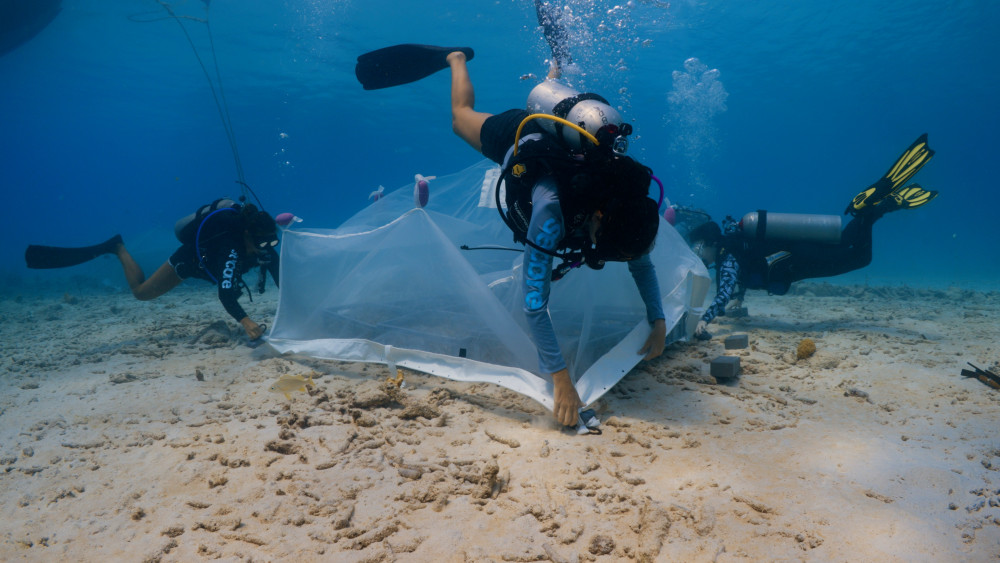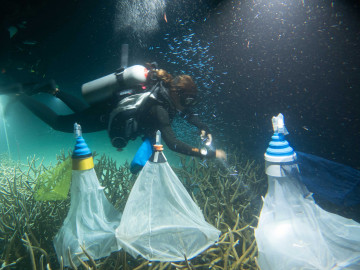
We utilize specially designed nets to collect coral spawn in the wild, ensuring efficient coral spawning collection for restoration efforts. These special nets are constantly being refined to make them easier to use. A diver needs to handle several nets under water during the night dives of the spawning dates, easy handling is therefore key. To advance coral reef restoration, we are developing innovative solutions that combine restoration techniques such as Coral Seeding with fragmentation. One such advancement is the Coral Tree Collector, a newly developed tool that gathers coral spawn from tree nurseries alongside coral fragments.


